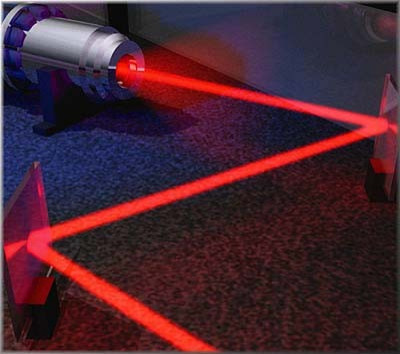Laser Beam to Locate Road Side Bombs

A new high-tech laser could play a significant role in detecting roadside bombs, one of the greatest causes of deaths for coalition soldiers, a study in from Michigan University has found.
A team at Michigan State University is developing the laser to sense bombs by probing their chemical compositions through vibrations while scanning the ground.
Detecting bombs has always been a challenge due to chemical compounds present in the environment that mask the bombs molecules, according to lead developer of the laser sensor, Dr Marcos Dantus.
Having molecular structure sensitivity is critical for identifying explosives and avoiding unnecessary evacuation of buildings and closing roads due to false alarms, he said.
The laser has been developed to give the compounds longer pulses through the vibrations it sends towards it, making it much easier to detect the bombs.
Dantus likens the pulse to a long ring tone, saying the laser pulse listens to that let off by the object, allowing soldiers to know if the set target is a bomb.
Dantus told the BBC he was not able to describe the technology behind the invention in great detail because of the project's sensitive nature, but he stressed that the technology will be able to detect a potential bomb from a standoff distance.
The laser has been shown to work at distances up to about 40 feet, though should be possible at distances of 330 feet. Beyond that, we need engineers who know how to handle longer distances, Dantus said in a statement to MSNBC.
Meanwhile, the BBC has reported that researchers at the University of St. Andrews are carrying out a similar experiment to detect roadside bombs.
Scientist Dr Graham Turnbull told the BBC that a laser spectroscopy technique called 'coherent anti-Stokes Raman spectroscopy' could be used for high-sensitivity stand-off detection of explosives.
While details of this study are being kept as well due to the sensitivity of the top, Turnbull revealed that so far the laser has been able to detect even the smallest of explosive molecules, giving hope for further development of the product from longer distances.
© Copyright IBTimes 2024. All rights reserved.





















